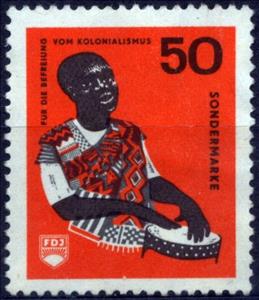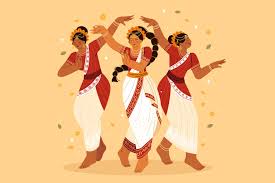Stamp: Sondermarke (Germany, Democratic Republic 1953)
Sondermarke (Germany, Democratic Republic 1953)
01 January (Germany, Democratic Republic ) within release FDJ goes into circulation Stamp Sondermarke face value 50 East German mark
| Stamp Sondermarke in catalogues | |
|---|---|
| Colnect codes: | Col: DD 1953-08 |
Stamp is square format.
Date not confirmedAlso in the issue FDJ:
- Stamp - Disz face value 20;
- Stamp - Eehrenmarke face value None;
- Stamp - Leipzig face value 0.50;
- Stamp - Sondermarke face value 50;
- Stamp - Tank face value 0.50;
- Stamp - Weltbund der Democraticher Jugend face value 20;
|
Data entry completed
50%
|
|
|---|---|
| Stamp Sondermarke in digits | |
| Country: | Germany, Democratic Republic |
| Date: | 1953-01-01 |
| Emission: | Cinderella |
| Format: | Stamp |
| Face Value: | 50 East German mark |
Stamp Sondermarke it reflects the thematic directions:
Music is an art form and cultural activity whose medium is sound organized in time. The common elements of music are pitch (which governs melody and harmony), rhythm (and its associated concepts tempo, meter, and articulation), dynamics (loudness and softness), and the sonic qualities of timbre and texture (which are sometimes termed the "color" of a musical sound). Different styles or types of music may emphasize, de-emphasize or omit some of these elements. Music is performed with a vast range of instruments and vocal techniques ranging from singing to rapping; there are solely instrumental pieces, solely vocal pieces (such as songs without instrumental accompaniment) and pieces that combine singing and instruments. The word derives from Greek μουσική (mousike; "art of the Muses"). In its most general form, the activities describing music as an art form or cultural activity include the creation of works of music (songs, tunes, symphonies, and so on), the criticism of music, the study of the history of music, and the aesthetic examination of music. Ancient Greek and Indian philosophers defined music as tones ordered horizontally as melodies and vertically as harmonies. Common sayings such as "the harmony of the spheres" and "it is music to my ears" point to the notion that music is often ordered and pleasant to listen to.
A tradition is a system of beliefs or behaviors (folk custom) passed down within a group of people or society with symbolic meaning or special significance with origins in the past. A component of cultural expressions and folklore, common examples include holidays or impractical but socially meaningful clothes (like lawyers' wigs or military officers' spurs), but the idea has also been applied to social norms and behaviors such as greetings, etc. Traditions can persist and evolve for thousands of years— the word tradition itself derives from the Latin word tradere literally meaning to transmit, to hand over, to give for safekeeping. While it is reportedly assumed that traditions have an ancient history, many traditions have been invented on purpose, whether it be political or cultural, over short periods of time. Various academic disciplines also use the word in a variety of ways.


